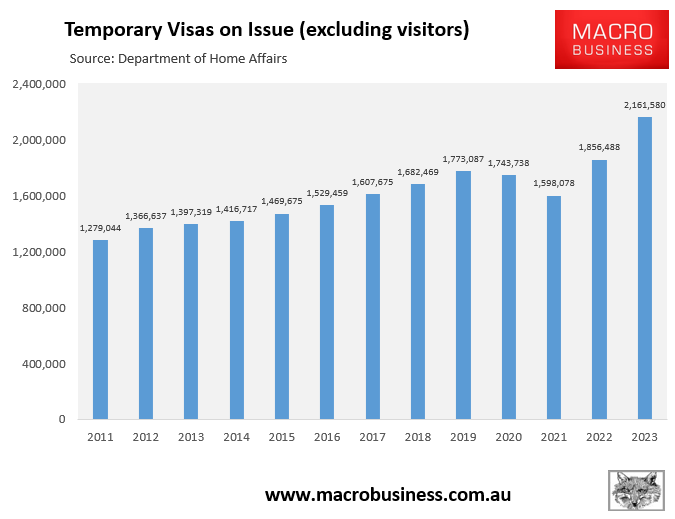Australia has some of the world’s weakest anti-money laundering rules, making Australian homes a honeypot for laundering dirty money.
In December, Treasurer Jim Chalmer announced that the federal government will triple the vacancy tax for properties held by overseas investors and triple the foreign investment fee for purchasing established residences.
The changes are expected to raise approximately $500 million in tax revenue, which will be used to pay application fee reductions for ‘build-to-rent’ projects.
The specific modifications announced include:
- Foreign investment fees for purchasing established properties have tripled;
- The vacancy fees for foreign-owned dwellings purchased since May 9, 2017 have doubled, resulting in a six-fold rise in vacancy fees for future acquisitions.
- Enhancing the ATO’s compliance regime to ensure foreign investors follow the regulations, including selling their homes when necessary.
“These changes further encourage foreign nationals to buy new property instead and help to ensure that those who do get approval follow the rules”, Treasurer Chalmers said in December.
“The higher fees for established dwellings will encourage foreign buyers to invest in new housing developments. This creates additional housing stock, jobs in the construction industry and supports economic growth”.
“The increased vacancy fees will encourage foreign investors to make their unused properties available to renters”, he said.
Two federal independent MPs – Senators Rebecca Sharkie and Andrew Gee – are now putting up a bill to ban sales of existing homes to foreigners for two years, like Canada has done.
This means that the market would be limited to citizens and permanent residents, thereby “prioritising the interests of Australians, particularly first home buyers”.
As expected, “independent” economist Nikki Hutley slammed the proposal, blaming Australia’s housing shortage on “supply” than demand and warning that the proposal would send the wrong message to skilled migrants who might be looking at Australia.
While foreign buyers purchasing existing homes are not the major driver of house prices, they do have a stimulatory impact.
I would like to see the federal government fully prohibit temporary residents from purchasing existing residences, as well as enact the global “tranche 2” anti-money laundering legislation governing real estate gatekeepers.
In 2009, the former Rudd government made the shortsighted decision to allow temporary migrants to buy established homes.
The accompanying surge in temporary migration, particularly international students (the majority of whom are from China), has stimulated demand for Australian homes:

In 2003, Australia agreed to implement extensive ‘Tranche 2’ global anti-money laundering laws for so-called real estate gatekeepers, including accountants, attorneys, and real estate agents.
The federal government has repeatedly postponed these rules in the face of considerable opposition from the industries that would be affected by the regulations.
The Albanese government should end the 20-year stonewalling cycle and finally apply the Tranche 2 AML standards, as well as prohibit non-permanent residents from purchasing established properties.
Otherwise, foreigners will continue to price locals out of housing, while Australian housing will remain a global magnet and safe haven for dirty money.

